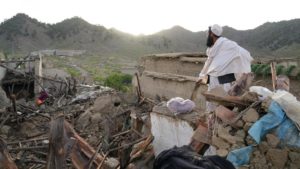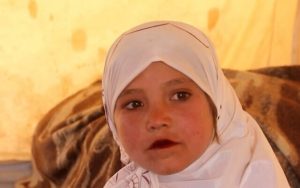

Ebrahim Nooroozi – June 24, 2022
GAYAN, Afghanistan (AP) — An aftershock took more lives Friday and threatened to pile even more misery on an area of eastern Afghanistan reeling from a powerful earthquake that state media said killed 1,150 people this week.
Wednesday’s magnitude 6 quake struck a remote, mountainous region already grappling with staggering poverty at a time when the country as a whole is spiraling deeper into economic crisis after many countries pulled back critical financing and development aid in the wake of the Taliban’s takeover.
That aid had been keeping the country afloat, and its withdrawal left millions unable to afford food and further strained already struggling medical facilities. Nearly half the population of 38 million cannot meet their basic food needs, while some civil servants, like doctors, nurses, and teachers, weren’t paid for months because the Taliban government is unable to access frozen foreign reserves. Salary delays continue throughout the public sector.
Afghanistan’s international isolation is also complicating relief efforts since fewer aid organizations have a presence in the country, and many governments are wary of putting money in the Taliban’s hands.
Aid groups lament that means they have to pay local staff with bags of cash delivered by hand.
Aid organizations like the local Red Crescent and U.N. agencies like the World Food Program have sent food, tents, sleeping mats, and other essentials to families in Paktika province, the epicenter of the earthquake, and neighboring Khost province.
Still, residents appeared to be largely on their own to deal with the aftermath as their new Taliban-led government and the international aid community struggled to bring in help. The shoddy mountain roads leading to the affected areas were made worse by damage and rain.
Thousands of stone and mud-brick homes crumbled in the quake, which struck at night, often trapping whole families in the rubble. Many of those who survived spent the first night outside in a cold rain. Since then, villagers have been burying their dead and digging through the rubble by hand in search of survivors.
The Taliban director of the state-run Bakhtar News Agency said Friday the death toll from the first quake had risen to 1,150 people. Abdul Wahid Rayan said at least 1,600 people were injured.

